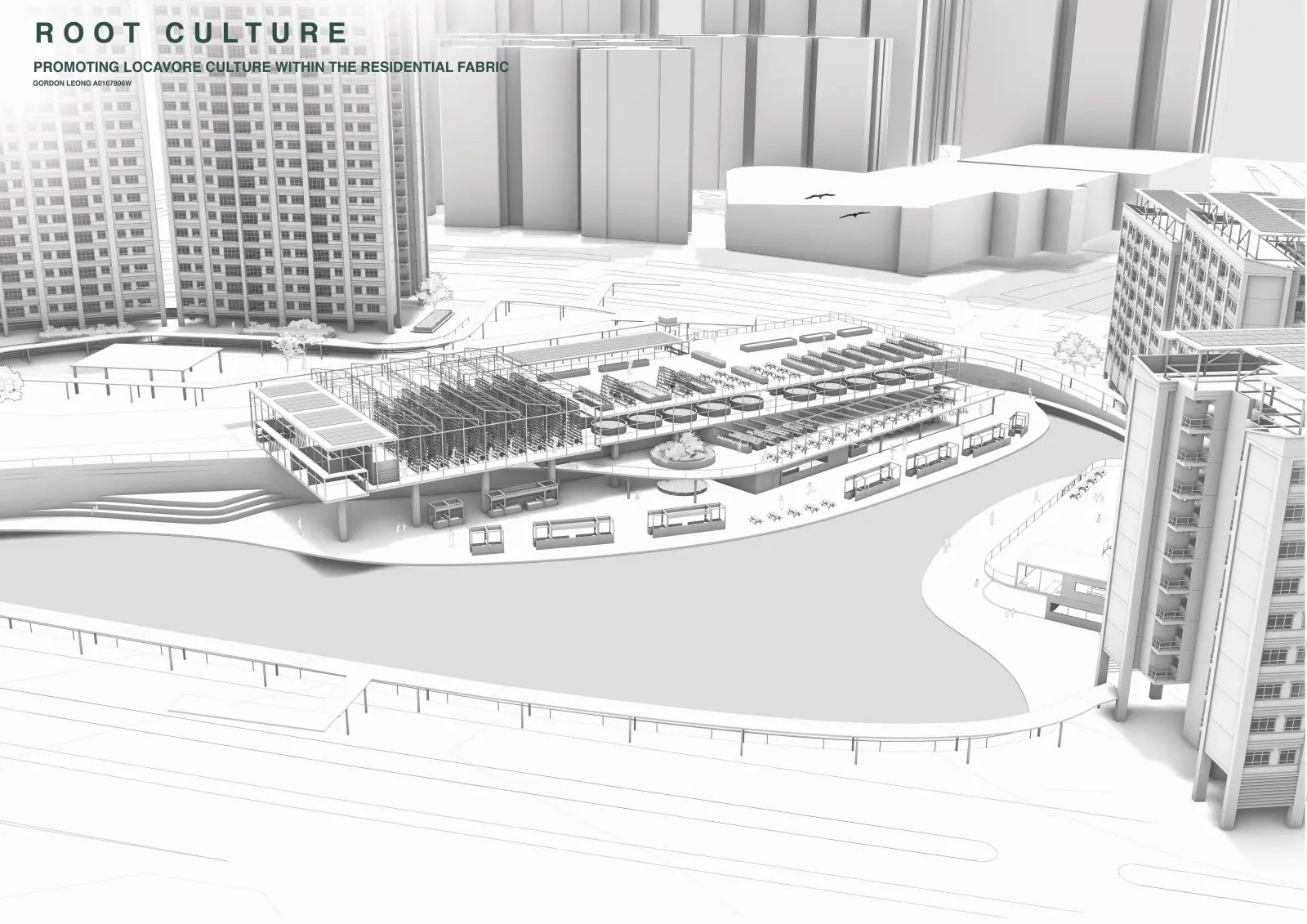
Root Culture - Promoting Locavorism Within The Residential Fabric
BY Leong Wei Xiang, Gordon
SUPERVISED BY Assoc. Prof. Rudi Stouffs (Dr.)
STUDIO THEME DATA / PROCESS / EXPLORATION
Abstract
The Thesis explores the opportunity and potentiality of incorporating and promoting locavore culture within our typical public housing typology. Locavorism is the practice of eating locally sourced food and the attempt to keep one’s foodshed to its minimum. Root Culture investigates the potential benefits in terms of not just food production capacity but social capital amidst its incorporation. By now, Singapore Food Agency’s (SFA) “30 by 30” goal should be no stranger to most Singaporeans. However, even with current efforts and the initiatives set out by government bodies to increase productivity and awareness, our production amount still falls short by 5% for leafy vegetables and 9% for fish. If we want to hit this national goal, progressing pass our current monofunctional land use approach is necessary. By tapping into the success of Singapore’s public housing and its inherent sociological part in our society, public housing provides the opportunity to bridge the imperative demand required to complement the projected supply of local produce. With reference to sociologist Ray Oldenburg’s “Theory of Third Places”, the thesis looks at how food production nodes can be the next “third place”, where ideas are exchanged and relationships are built. Adopting a calculated and computational approach, Root Culture prospects the researched framework in which food production becomes an essential component in our residential fabric, transforming what were initially industrial mundane elements of its operational systems to the socially captivating and performative.
Supervisor Comments
This project aimed at integrating urban farming, both vertical farming and aquaculture, into a public residential estate. The amount of urban farming is calculated from the estate’s targeted population in relationship to Singapore total population and its ‘30 by 30’ plan. A holistic solution was conceived, considering rainwater runoff, catchment and (partially) open storage, and solar exposure, and including community gardening, kitchen, farmer’s market and food court. The urban farming intentionally takes a central position in the estate so as to make it visible, accessible and in close integration with all related functions, including the estate’s urban landscape.
- Assoc. Prof. Rudi Stouffs (Dr.)